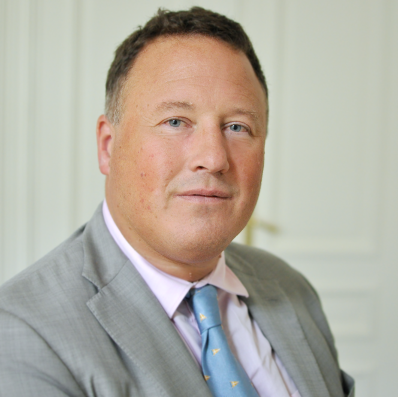On Friday (26 January) the WHO Executive Board approved a new five-year work programme for the Organization containing three ambitious goals. Over the five years 2019 to 2023 WHO and its 193 Member States should work together to achieve:
On Friday (26 January) the WHO Executive Board approved a new five-year work programme for the Organization containing three ambitious goals. Over the five years 2019 to 2023 WHO and its 193 Member States should work together to achieve:
- 1.1 billion more people benefiting from universal health care
- 2.1 billion more people better protected from health emergencies
- 3.1 billion more people enjoying better health and well being
Nonetheless, the Board’s resolution endorsing WHO’s draft General Programme of Work 2019-2023, along with its ambitious goals, stopped short of accepting a request for more funding. WHO Director-General, Dr Tedros, had requested an extra US $2 billion for WHO over the five years of the Programme to deliver on its ambitions. The Board de-linked the budget estimate from the Programme before sending it for approval by all 193 Member States in May at the World Health Assembly. This meets 22-31 May in Geneva.
The draft Programme endorsed by the Executive Board this month contained all the key ideas presented to it by Dr Tedros in November (click here to see November blog). In particular, the three key priorities of universal healthcare, health emergencies and achieving the UN Sustainable Development Goals in the area of health – and the “Triple Billion” target – are still at the centre of the Programme. Additional phrases and paragraphs have been added to emphasise WHO’s commitment to issues such as gender equality, healthy aging and mental health. There is also additional text emphasising the importance of WHO’s standard setting, or “normative” work. However, all countries now seem to accept the need for WHO to be “operational” during health emergencies – and occasionally take on the role of health service provider of last resort.
In terms of priorities, principles and outline future plans, Dr Tedros seems to have got the five-year Programme that he wanted. Of course, final approval of the draft Programme will be at the World Health Assembly in May. All 193 WHO Member States need to sign off on it, and only 34 countries are represented on the Executive Board. Nonetheless, countries that are not on the Board can still attend and speak at its meetings (though not vote). According to the provisional list of participants from this month’s meeting, some 86 countries sent delegates along on this basis. With 120 countries seemingly on-board, the chances of major changes to the Programme in May seem small.
The countries of the world (or at least 120 of them…) now profess to back Dr Tedros’s vision of WHO being more political and more vocal in promoting the health agenda. Dr Tedros has been clear about his intention to put health on the agenda of high level political meetings, such as the G7, the G20 (he already attended the 2017 summit), the BRICs meeting and, of course, the UN. Indeed, this autumn there will be no fewer than two special sessions of the UN General Assembly specifically on health issues: one on tuberculosis and one on non-communicable diseases. There is some logic to this approach. Dr Tedros’s top priority is extending universal health coverage. All UN Member States have signed up to principle of universal coverage in the 2015 Sustainable Development Goals. However, making it happen is going to require countries investing large amounts of their own money. It is not WHO’s usual constituency of health ministers that need to be convinced of the social, economic (and moral) arguments for extending health coverage. It’s Prime Ministers, Presidents and Finance Ministers who need to be convinced.
In the end, achieving the “Triple Billion” targets depends on political will. And money. Which brings us back to the one area where Dr Tedros did not get what he wanted. The big contributors to WHO’s budget – the Europeans, the US, Canada, Japan and other rich countries – need more convincing that extra funds for WHO is a good investment. Dr Tedros is putting in place new frameworks for measuring performance and impact. In time, these should help WHO make a more forceful case for investment.
As was said during the Executive Board’s debate on physical activity, it’s harder to get people to “walk the talk” than just “talk the talk”. Dr Tedros might have been tempted to add that it’s even harder getting people to “fund the talk”.
